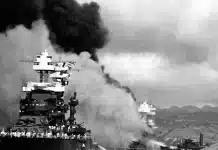|
This essay compliments the January 6, 2019 article Woodrow Wilson War President for Zionist Bankers. The following discloser in the account, Colonel House: A Biography of Woodrow Wilson’s Silent Partner, a review by Mark Benbow puts forward an analysis found in the CIA Library and provides a hint of the history behind establishment. “In this new biography, historian Charles Neu takes on the challenge of Edward M. House, friend and confident of President Woodrow Wilson.” “At the 1919 Versailles Peace Conference, House would play an even bigger role than he had before, but it would be a Pyrrhic success. He accompanied Wilson to Paris for the talks, supplanting Secretary of State Robert Lansing as the president’s most important foreign policy advisor. House set up The Inquiry, a group of over 100 academics and other experts who gathered information and wrote briefings for Wilson to help plan the peace for the end of the war. It was, in effect, a temporary intelligence agency, a precursor in many ways to the CIA’s own Directorate of Intelligence.” The Inquiry may not be a popular name, but the function of clandestine intelligence that would evolve into the CIA, has roots in the efforts of Colonel House. However, the linkage did not directly lead to The Agency. Well circulated establishment personality, CFR President Richard N. Haass, acknowledges the connection to Continuing the Inquiry. The Council on Foreign Relations has a sinister legacy associated with its influential elitists that emerges as servants to the cabal behind the New World Order. The deeds of this authoritarian consortium of globalists were modeled after the Philip Dru administrator as defined in the novel from Colonel House: The man you don’t know who ruined your life by James Strong. “House had authored a novel, published by various accounts in 1905-6, titled Philip Dru: Administrator, which he made available for Wilson to read, digest, and hopefully act upon. The book depicts a second U.S. Civil War, with a participant, Philip Dru, creating for the world, in the war’s aftermath, a new world order characterized by a single administrator (Dru) working through a World Bank, World Court, World Army, and a League of Nations – i.e., utopia achieved!” While Colonel House gets the most attention as “my second personality. He is my independent self. His thoughts and mine are one“, says Woodrow Wilson; his lasting influence is in introducing The Inquiry methodology of advisors, which initiates the Deep State. The system of using empire conducive advisors under the guise of CFR and every other think tank, developed into a culture of protection for the power brokers that actually design and oversee the implementation of government policy. From the Robert Welch University Press – Foreword to the 1998 Edition. “Philip Dru: Administrator belongs on the short shelf of political works which are read primarily for precautionary reasons. As with Adolf Hitler’s Mein Kampf, Dru is a dauntingly candid description of one man’s ruthless ambition; like the Communist Manifesto, Dru can be read as a detailed schematic for subversion. The book, which expressed the “ethical and political faith” of a man who came to be known as the “Assistant President of the United States,” — is perhaps best regarded as a successor to Machiavelli’s essay The Prince: It set forth the designs of an amoral plotter who was the “power behind the throne.” Just as it is impossible to understand the tragedy of modern totalitarianism without some understanding of the hate-drenched scribblings of Hitler and Marx, it is at best very difficult to understand the covert forces that have shaped America’s political destiny without some understanding of the fictional Philip Dru and his historical counterpart, “Colonel” Edward Mandell House.” “Philip Dru: Administrator is arguably the most influential political tract of the twentieth century. Its influence has been written in blood and paid for in the coin of stolen liberties. But its malignant vision has not yet triumphed completely. Those who would defeat the designs of the Power Elite must first understand those designs — and they are on full display in Philip Dru, so writes William Norman Grigg Appleton, Wisconsin September 1998.” Most mainstream historians eagerly assign to Edith Wilson (Woodrow Wilson’s second wife) the effective power of the office after President Wilson suffered a debilitating stroke in 1919. While this assessment has widespread agreement, it avoids the factual reality that Presidents seldom are the sole decision “decider in chief” behind the imperialism of policy that keeps a permanent global conflict. Even a war time despot like FDR went to great lengths to pack the courts and the bureaucratic agencies with establishment loyalists. It is not a coincident that financier Bernard Baruch advised both Wilson and Roosevelt. Make no mistake, Philip Dru is embodied in every administration as disclosed by Colonel House. President Wilson and Colonel House could not gain support in the U.S. Senate for the League of Nations. It took a second world war to set the stage for the United Nations. Quislings like Alger Hiss, who was instrumental in establishing the UN and Harry Hopkins, FDR’s closest and most influential advisor, were Soviet spies and are examples of the Philip Dru school of traitors. Presidential administrations advisors usually have a short shelf life. Few Henry Kissinger’s exist as their own power center. Yet, the ghost of Edward Mandell House walks the corridors of 1600 Pennsylvania Avenue. The surreptitious factions of the intelligence community are founded on and perfected the precepts delineated in Philip Dru administrator. President Woodrow Wilson was a dupe and fool of the highest order. Over many decades, the growth of influence in the sprawling agencies, accountable only to the limits of their budgets, often ignore the directives of their president. The conclusions of the modern day version of The Inquiry has expanded so greatly for achieving the globalist agendas that competition clash is a major part of the system. The notion that the President is the most powerful person on earth is suspect when so many administrators employ Saul Alinsky tactics in their Philip Dru model. SARTRE – May 28, 2019 |
|
|
|
SARTRE is the pen name of James Hall, a reformed, former political operative. This pundit’s formal instruction in History, Philosophy and Political Science served as training for activism, on the staff of several politicians and in many campaigns.
A believer in authentic Public Service, independent business interests were pursued in the private sector. As a small business owner and entrepreneur, several successful ventures expanded opportunities for customers and employees. Speculation in markets, and international business investments, allowed for extensive travel and a world view for commerce. He is retired and lives with his wife in a rural community.
“Populism” best describes the approach to SARTRE’s perspective on Politics. Realities, suggest that American Values can be restored with an appreciation of “Pragmatic Anarchism.” Reforms will require an Existential approach. “Ideas Move the World,” and SARTRE’S intent is to stir the conscience of those who desire to bring back a common sense, moral and traditional value culture for America.
Not seeking fame nor fortune, SARTRE’s only goal is to ask the questions that few will dare … Having refused the invites of an academic career because of the hypocrisy of elite’s, the search for TRUTH is the challenge that is made to all readers. It starts within yourself and is achieved only with your sincere desire to face Reality.
So who is SARTRE? He is really an ordinary man just like you, who invites you to join in on this journey.
Resources: BATR Newsletter
– BATR Forum
All content herein is owned by author exclusively. Expressed opinions are NOT necessarily the views of VNR, authors, affiliates, advertisers, sponsors, partners, technicians, or VT Network. Some content may be satirical in nature.
All images within are full responsibility of the author and NOT VNR.
Read Full Policy Notice - Comment Policy






























